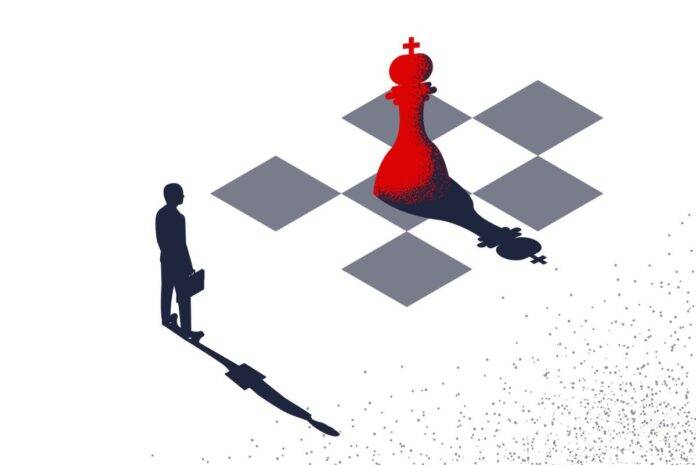Power is a double-edged sword. It enables leaders to make decisions, drive progress and inspire teams — but it can also lead to arrogance, unethical behaviour and corruption. The famous phrase by historian Lord Acton, “Power tends to corrupt, and absolute power corrupts absolutely,” has stood the test of time. But does power inevitably lead to corruption? More importantly, what can leaders do to avoid its pitfalls while using power effectively? Research offers some answers.
The Science Of Power And Corruption
Does Power Really Corrupt?
Studies suggest that power does not corrupt everyone; it amplifies existing traits. According to research by Keltner, Gruenfeld and Anderson (2003) published in Psychological Review, power tends to magnify personality characteristics — if someone is ethical and responsible, they become more so when given power. Conversely, if someone is selfish or egotistical, power makes them even more so.
Other research, such as Lammers, Stapel and Galinsky (2010) in Psychological Science, found that power increases moral hypocrisy — leaders are more likely to condemn others for unethical behaviour while excusing themselves. In business, this translates to leaders who may start with good intentions but gradually become insulated from reality, believing they are above accountability.
Why Does Power Change People?
Power alters the way people think and behave in several ways:
- Reduces empathy: Research in The Journal of Experimental Social Psychology (Galinsky et al., 2006) shows that powerful people are less able to see things from others’ perspectives.
- Increases risk-taking: Research published in Proceedings of the National Academy of Sciences (2011) suggests that power increases dopamine levels, making leaders more prone to risky decisions.
- Creates a sense of invincibility: Power often leads to an inflated sense of self-worth, making leaders believe they are always right.
However, power does not have to lead to corruption. Leaders who cultivate self-awareness and accountability can use power as a force for good rather than a path to self-destruction.
Strategies for Using Power Wisely
1. Stay Accountable
- Unchecked power is dangerous. Leaders must create systems that keep them honest.
- Encourage feedback: Surround yourself with people who will challenge your ideas, not just agree with them.
- Establish checks and balances: Make sure decisions are subject to oversight.
- Promote transparency: The more visible your actions, the less likely corruption can take hold.
2. Develop Self-Awareness
Leaders must actively monitor how power affects them. Questions to ask:
- Am I still listening to others?
- Have I changed how I treat people?
- Are my decisions benefiting the organization or just myself? A willingness to confront these questions — and adjust accordingly — can prevent ethical drift.
3. Use Power to Empower Others
Power should not be hoarded but shared. Leaders who delegate authority, develop talent and foster collaboration create stronger, more resilient organizations. Research by Edmondson (1999) in Administrative Science Quarterly on psychological safety shows that empowering employees leads to greater innovation and trust.
4. Lead with Humility
Power should not be about dominance but service. Ethical leaders:
- Admit mistakes rather than cover them up.
- Listen more than they speak to stay grounded.
- Acknowledge their privilege and use it responsibly.
5. Focus on Long-Term Impact
Many ethical failures stem from short-term thinking — leaders cutting corners for quick wins. The Seventh Generation Principle, rooted in Haudenosaunee (Iroquois) Confederacy wisdom, teaches that decisions should be made with the well-being of seven generations into the future in mind. This philosophy encourages leaders to prioritize sustainability, ethical responsibility and community impact over short-term power or profit.
By adopting a long-term mindset, leaders can ensure that their influence benefits not just themselves or their organizations, but also society at large. This principle aligns closely with ethical leadership practices seen in sustainable businesses and responsible governance.
Power Is a Tool, Not a Trap
Power itself is not the problem — it is how it is used that determines whether it corrupts or uplifts. Leaders who actively practise accountability, humility and ethical decision-making can avoid the pitfalls of power and create lasting, positive impact. So, if power tends to corrupt, what’s a leader to do? The answer is simple: Use power to serve, not to rule. Would you rather be remembered for the power you held, or the good you did with it?
Real-World Examples of Ethical Leadership
The best way to understand ethical power is to look at those who have wielded it responsibly. Here are some examples of leaders who maintained integrity despite the temptations of power:
Jacinda Ardern (former prime minister of New Zealand)
Ardern’s leadership was marked by compassion, transparency and integrity. When faced with crises, such as the 2019 Christchurch mosque attacks, she led with empathy rather than authoritarianism. During the COVID-19 pandemic, she took a 20-percent pay cut for six months to show solidarity with struggling citizens. Her use of power strengthened trust rather than eroded it.
Warren Buffett (CEO of Berkshire Hathaway)
Despite his immense wealth, Buffett is known for his modest lifestyle and ethical business practices. He rejects excessive executive pay, calls for higher taxes on the wealthy and refuses to engage in deceptive business tactics. His philosophy: power should serve the greater good, not just personal gain.
Nelson Mandela (former president of South Africa)
Mandela is one of history’s most profound examples of ethical leadership. After 27 years in prison, he chose forgiveness over revenge and led South Africa through a peaceful transition from the white-supremacy policy of apartheid. Unlike many leaders who cling to power, he voluntarily stepped down after one term, proving that leadership is about service, not control.
Mia Maki is an associate dean, faculty outreach, at the Gustavson School of Business at UVic; a professor of finance, accounting and entrepreneurship; and a principal at Quimper Consulting. Maki has helped raise over $50 million for international initiatives, including acquisitions, strategic partnerships and joint subsidiary creation projects.
All images: Getty Images

























